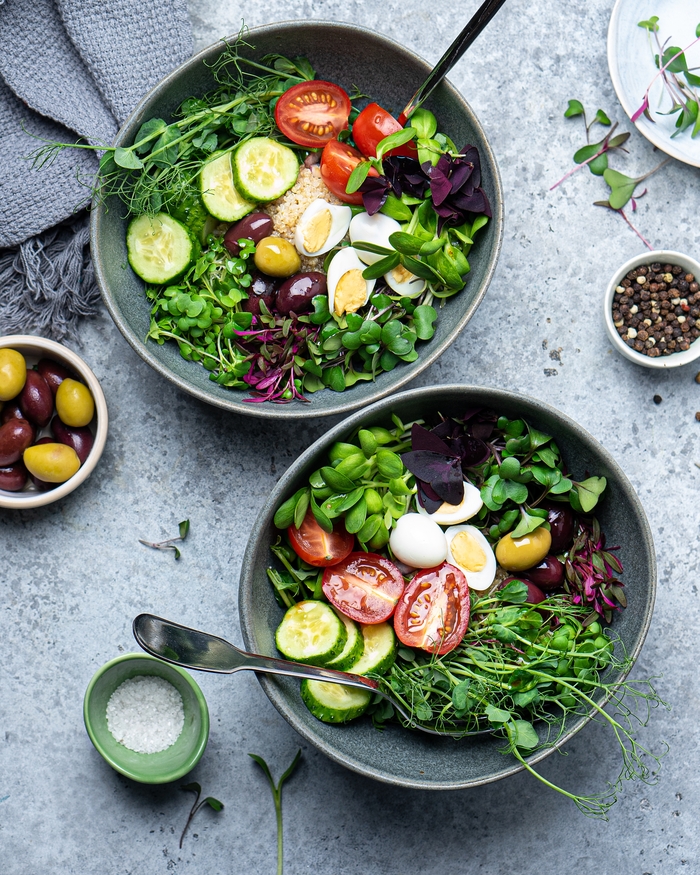We are mired in health, family, security, economic and political divisions, homeschooling and remote work. Among the chaos, it is vital to find a place for awareness and focus on well-being. Nutrition is the key to maintaining balance in this emotionally overwhelmed world. This article will talk about the 2022 nutrition and eating trends and how to support your immune system.

Functional food
Covid-19 has significantly affected global demand and consumption. Compared to 2010, people have become even more concerned about their health: about 54% of all consumers care about the benefits of products and put them above price and taste. And in this case, the statement of Hippocrates that nutrition should be medicine, and medicine – food is more relevant than ever, because it is the message of functional nutrition.
Whole grain food
Fruits, vegetables, seeds, nuts are rich in nutrients. Fiber in plant foods nourishes the intestinal microflora, which increases immunity to pathogens. Chronic inflammation is associated with numerous heart diseases, some types of cancer, and Alzheimer’s syndrome. Antioxidants found in whole grains help reduce inflammation by neutralizing free radicals.
Healthy fats
Healthy fats increase the immune response to infections and reduce inflammation. For example, low-level inflammation is a normal response to stress or injury, while chronic inflammation suppresses the immune system. Omega-3 fatty acids found in olive oil, chia seeds, and salmon have strong anti-inflammatory effects, reducing the risk of heart disease and type II diabetes.
Fermented foods and probiotics
Fermented foods contain beneficial bacteria, also known as probiotics. They are found in the digestive tract and help immune cells distinguish between harmful pathogens. In one study, it was reported that daily consumption of 70 ml of fermented milk reduces the risk of infectious diseases in children by 20%. If you don’t like or don’t eat fermented foods often, you can replace them with probiotic supplements, which also has a good nutritional effect.
Limited sugar intake
Adding sugar and refined diets to your diet not only contributes to being overweight, but also increases the risk of chronic disease. Sugar intake should be limited to 5% of the daily value of all calories, which is equal to 25 g for a diet designed for 2000 kcal.
Climate diet
Sustainable brands are the trends. Now, instead of the constant debate about the benefits or harms of eating meat and maintaining a vegan lifestyle, people are focusing on the foods that have the least impact on climate change and nutritional effect. Well, for example, replacing beef with chicken. Buying locally produced products also reduces our carbon footprint, because food does not travel thousands of kilometers to our table.
Be careful of what do put in your mouth
Many have realized that excessive levels of cortisol, the stress hormone, seriously impair metabolism. Cravings for unhealthy foods, increased belly fat and an increased risk of various diseases, depression – this is what we have to overcome this year. A strict diet is a bad idea because it almost never works in the long run. A healthy lifestyle, on the other hand, takes a long time to implement, but involves good nutrition, quality sleep and exercise.
